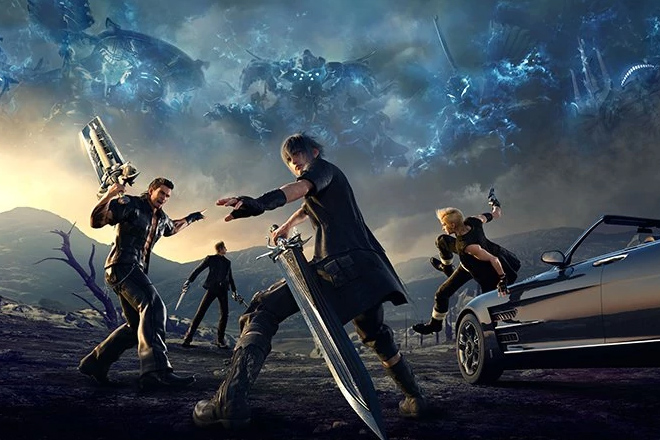Video game music has evolved tremendously of the last few decades—from monotonous beeps to a handful of catchy notes and chords to sweeping cinematic masterpieces. One game known for its sophisticated music is Final Fantasy, a role-playing game whose latest installment (Final Fantasy XV) is the fastest-selling game in series history. Written by groundbreaking composer Nobuo Uematsu, the score is featured in a global orchestral tour, Distant Worlds, which comes to the Chicago Symphony Center tomorrow for two shows.
Created in 2007, Distant Worlds concerts are unique experiences, with a symphony orchestra, choir, guest vocalists, and instrumental soloists, featuring well over a hundred musicians. The shows are conducted by Grammy-winning artist Arnie Roth, who hails from Chicago.
Trained as a professional violinist, Roth has conducted orchestra, pop, opera, and ballet with artists ranging from Andrea Bocelli to the Irish Tenors to Diana Ross. He’ll be conducting the two sold-out shows Saturday, with Uematsu in attendance. We spoke with Ross about how the tour came to fruition, what it’s like to orchestrate music from one of the most popular video games in history, and how it has been able to capture such a large, growing following over the last decade.
How did the idea for the Distant Worlds series come about?
Back in about 2002, I was music director and conductor of the Chicagoland Pops Orchestra. A colleague and I started examining the video game music concerts happening in Japan, mostly using orchestra, sometimes choruses, but all in a concert hall. There had never been any in the United States at that point, which is pretty amazing actually.
We decided to take a chance on what was widely acknowledged to be the best video game with the best music: the Final Fantasy series. We did the first show in 2005, with the composer Nobuo Uematsu in attendance, and it sold out 4,000 seats. Uematsu and Square Enix [publisher of Final Fantasy] asked me to conduct several other shows. Together, we came up with Distant Worlds for a global touring model.
Have you or any of the musicians ever played Final Fantasy—the game—before you performed its music?
If you asked me that question ten years ago, you’d have a lot of orchestra musicians scratching their head saying, “I know nothing about the music or the game.” Now, some of them are asking for tickets to the show. Certainly it’s a minority in the orchestra, but we definitely have musicians who play with us that are huge fans of the game.
When I’m studying the music scores, I’m working directly with the composers from the series. They are sending me original tracks and how they’re used within the game, so I get a much more microscopic view of the music. I find that more efficient, just in terms of time management and learning the scores.
How has it been working with Uematsu?
There are many composers involved on the series, but Uematsu is regarded as the father of the music for Final Fantasy. Time magazine called him the John Williams of video games. Williams did Star Wars, Jurassic Park, Harry Potter, E.T., Indiana Jones, many films. Every one of those movies is marked by very strong melody and structure in the writing style. Uematsu’s music is about identifiable melody, balance, and structural, and many of his themes are still developed and used in contemporary ways for later versions of the game. He’s the groundbreaker.
What do you think it is about this game and its music that sparks such a unique and strong reaction?
Uematsu’s original idea was that in the game, every single character, battle, quest, romantic relationship, death, etc., has its own motif. Players have strong, intimate attachments to this music. It reminds them of their favorite characters, the difficult boss they finally beat after hours of playing, and all the other intricate, emotional plot twists and turns within the game.
To this day, whenever we play “Aerith’s Theme,” we have people moved to tears. Several times, we’ve had people propose to their significant other in the aisles when their favorite songs play. It’s really amazing.
Distant Worlds has been running for 10 years now, touring in cities all over the globe. How has it been received in different places around the world?
It’s a wonderful hybrid between classical audiences—very intensive and quiet during the performance, they want to hear every single note—and almost like a rock concert reaction, with over-the-top cheering, standing ovations, particularly after their favorite pieces. We also display corresponding footage from the game during the concerts. There are so many games, and so many characters in them, and the audience has very nostalgic and emotional ties to the melodies.
Over the ten years, the attendance has grown. We sell out in Chicago, Toronto, Singapore, Lyon, Stockholm… it’s just really gratifying to see how the series has evolved. I find them the very best audiences to conduct for.




